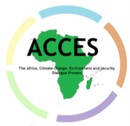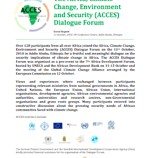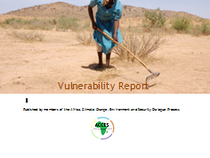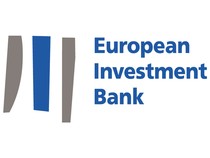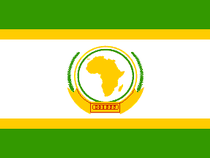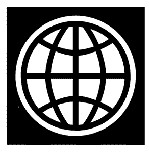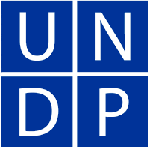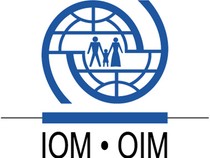Description
The negative impacts of climate change combined with a growing population, poverty, the current number of existing conflicts, weak state structures, and low capacities to respond have potentially high consequences on security in Africa. In order to address the security risks of climate change in Africa from a development and security perspective, the Madariaga - College of Europe Foundation and the Folke Bernadotte Academy, in cooperation with the General Secretariat of the Council of the EU, have initiated a Dialogue Process on “Africa, Climate Change, Environment and Security” (ACCES). The initiative works in cooperation with the UN system (including UN-DPA, UNDP, UNEP, UNECA, and UNIDO), the World Bank, EU institutions and Member States, the European Investment Bank, the International Organization for Migration, the African Union, the African Development Bank, the Global Water Institute, the Institute for Environmental Security, and the Parliamentarians Network for Conflict Prevention and Human Security.
The Dialogue Process will proactively contribute to identifying and developing projects that improve climate resilience. The Process will work closely with National Authorities to better understand the priorities of national adaptation strategies. The Process also seeks to collaborate with other financiers, academia and NGOS to share knowledge, develop synergies and engage in appropriate co-financing options such as grants and lending. The Process also wants to increase the capacities of projects that promote adaptation, and wants to systematically include climate change impacts at the planning and design stage of these projects.
The Dialogue Process is structured around “Vulnerability Cells” focusing on water security, food security, energy security, migration and natural hazards in the context of climate change and security. These Cells formulated a Vulnerability Discussion Paper in advance of the first Dialogue Forum on Climate Change and Security in Africa in Addis Ababa on 11 October, 2010 as a means of stimulating discussion between international, European and African partners. The Forum was organised as a pre-event to the 7th African Development Forum arranged by the UN Economic Commission for Africa, the African Union Commission, and the African Development Bank. The main objective of the Forum was to build-up relevant networks and to complement the research contained in the Discussion Paper with the realities on the ground in Africa.
The Vulnerability Discussion Paper mapped the security implications of climate change in Africa in a holistic way by assessing the macro- and micro-level security risks in the five domains outlined above. Each Cell adopted its own methodology which is reflected in the differing approaches of the thematic analyses. Without aiming to deliver exact predictions, and without bias towards individual countries or regions, the Discussion Paper identified the climate change and security “hot spots” in Africa as a means to call attention to their vulnerabilities and to trigger early action.
The Vulnerability Report that is now being read is the combination of the initial research contained in the Vulnerability Discussion Paper and the exchanges resulting from the first Dialogue Forum. Existing research has thus been bolstered by dialogue with African and international partners, and where necessary authors have amended each Cell chapter in light of the Dialogue Forum. This Report is an open-ended document, which serves as starting point for further assessments and elaboration of "fundable" projects in the later stages of the Dialogue Process.
It is expected that this Report and the entire ACCES process will trigger a new wave of international engagement and sustainable dialogue between main international stakeholders and African counterparts that will result in effective, long-term partnerships for building-up the appropriate response and resilience capacities in a conflict sensitive and preventive manner in Africa.
